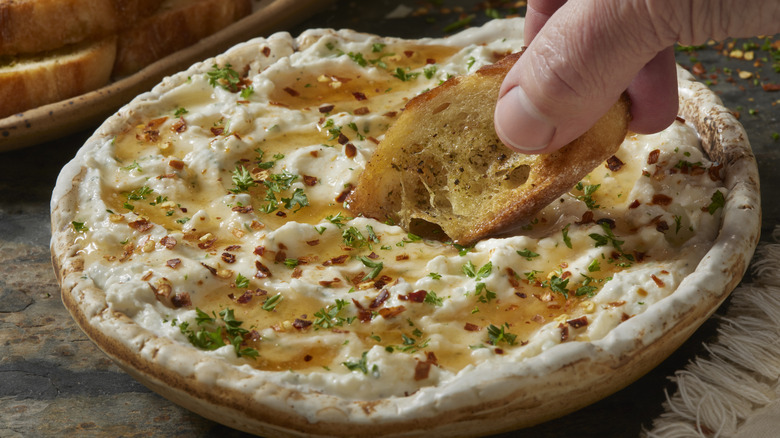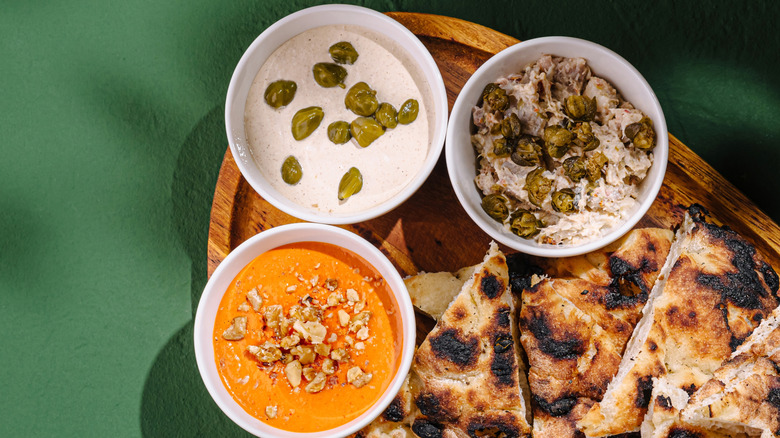Why You Should Think Twice Before Double-Dipping Food At A Party
Snacks are pretty much an inevitable part of any party. Whether it's crispy, crunchy potato chips you can't stop munching on, some juicy, deep-fried chicken tenders that disappear the moment they hit the table, or a plate of rich and savory sausage balls with cranberry mustard, snacks are what keeps the flow going. And, where there are snacks, there are dips. There's something undeniably satisfying about drowning your food in a rich, flavorful sauce. Some people even go in for the dip more than once, although many find that pretty rude and unsanitary.
If you don't care what others think, though, and you give in to the temptation of the double dip, keep in mind that each time you go back in, bacteria from your saliva goes straight into the bowl. Just for the record, there are more than 100 million microbes in just one milliliter of saliva. And, to make matters even more interesting, a 2009 study found that the amount of bacteria in a dip significantly increases after someone takes a bite and goes back in for a second time. So, health-wise, do you really want someone else's germs in your system? That's what we thought. However, if you're still not convinced, that is not the only reason to skip the double dip.
Saliva has enzymes that can ruin the dip's texture
According to the U.S. National Library of Medicine, up to 100 bacteria are transferred from one person to another per bite through double dipping. So, before you use the simple method for perfectly reheated nacho cheese sauce or try to figure out the best way to use up leftover buffalo chicken dip, make sure you know exactly who you're inviting over to eat them with. However, while germs may be one issue, the second big reason you don't want anyone double dipping is because it can ruin the dip's texture and overall flavor.
While saliva may be 99% water, the remaining 1% is loaded with proteins and electrolytes, as well as powerful enzymes. These include amylase, which breaks down complex carbs, and lingual lipase, which helps digest fats. Once these enzymes come in contact with a dip, they will start reacting with the targeted nutrients and decompose them into smaller molecules, ultimately making the dip thinner and runnier. Naturally, this happens because enzymes are meant to aid digestion and help us break food down into absorbable form, a process that, unsurprisingly, continues outside the body, too.
So, before one of your friends tries to double dip and makes your other guests lose their appetites, why not just put out an extra spoon for scooping, or serve individual dips for each guest? This way you can avoid awkward party encounters, and the dips stay clean.

